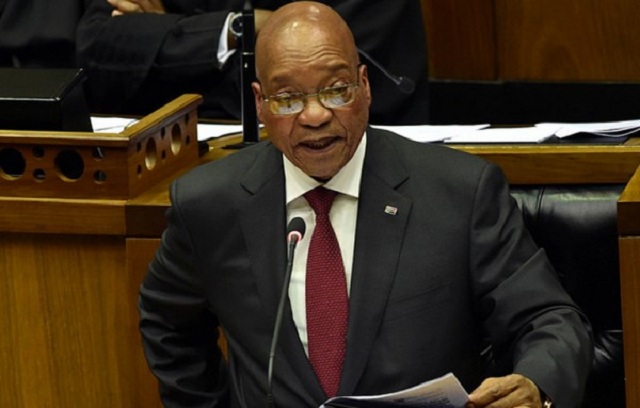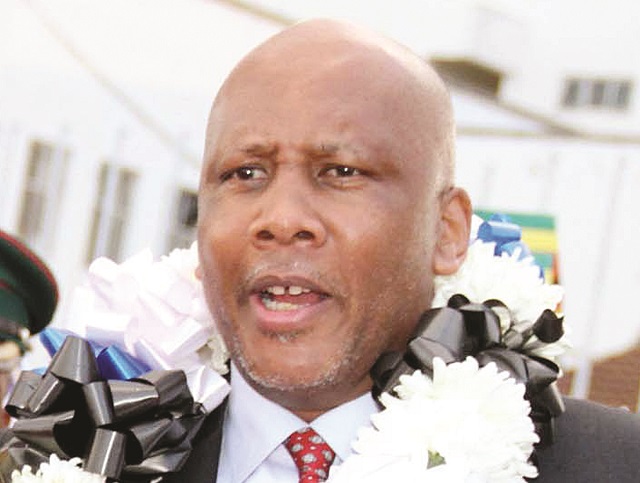A risk deadlier than sanctions

Spectrum, Joram Nyathi
Without SI64 and with the rand as the official currency, Beitbridge literally becomes a revolving door through which a few rands and cheap goods flow in, and then more rands go out but unaccompanied by goods
THERE is a raging debate about whether Zimbabwe should adopt the South African rand as its main trading currency. The debate has gathered momentum lately as a result of the apparent shortage of physical cash, manifesting in long queues outside banking halls and the failure to pay tobacco farmers on time. It is argued somehow that officially adopting the rand will resolve this cash “shortage”.
This is strange because the rand is among nine currencies in the multicurrency basket adopted in 2009. There is no question that when dollarisation was introduced, the rand was already a major player in the local economy, particularly the black market. How it slowly fell out of favour to be overtaken by the US dollar is a story yet to be told. The same as to why there is this urgent push by business for its “restoration” as it were.
It is good that Government has largely kept out of the debate, a debate fuelled largely by self-doubt, mistrust of local financial institutions and opting to have Zimbabwe outsource management of its economy to South Africa. It is a risky option.
A hard question that’s not being tackled with honesty is why it would be right for South Africa to print sufficient rand notes to meet our requirements, but it is wrong for Zimbabwe to print enough Bond notes to satisfy the same requirements? Put another way, what’s happened to the Bond notes that won’t happen to the rand, a currency far easier to take back to South Africa than the Bond note?
One of the arguments pushed for prioritising the rand is that South Africa is Zimbabwe’s biggest trading partner. Alternatively, the US dollar is too strong for local manufacturers to export competitively. When juxtaposed with SI64 of 2016, this argument turns out to be illogical because of the challenges it raises.
The argument against the introduction of Statutory Instrument 64 of 2016 which banned unnecessary imports was that Zimbabwe had no industry to protect. Which invites the question of the balance of trade between the two neighbours. It obviously means it is tilted in favour of South Africa.
How does local industry counter that by adopting the rand? How does officially adopting the rand improve Zimbabwe’s export competitiveness when our rand prices are in fact based on the prevailing US dollar exchange rate? Who in fact is pushing for adoption of the rand?
These are not idle questions. The debate impinges on the relations between Zimbabwe and South Africa. It has a strong bearing on Zimbabwe’s own economic policies, starting with SI64. Here is why: Zimbabwe cannot go begging for rands and at the same time maintain SI64. But removing SI64 undermines the whole drive for industrialisation, because it opens the floodgates for cheap imports.
Without SI64 and with the rand as the official currency, Beitbridge literally becomes a revolving door through which a few rands and cheap goods flow in, and then more rands go out but unaccompanied by goods. Put plainly, without sufficient exports to earn the rands, it means the Reserve Bank of Zimbabwe will be forced to buy them. Then they are taken out to buy more finished products. Sadly, the same way we are told Zimbabwe spends between $10 million and $15 million every month to import American dollars. Which are quickly taken out.
That’s not how to run an economy. Foreign currency should be earned, not bought. That is what industry should be focusing on — productivity. What to do with the forecast bumper harvest this season — value addition and increased exports. And less foreign consumption.
But then in a nation that’s full of self-doubt, there are always efforts to make the illogical seem so logical, to normalise the abnormal, so to speak. The argument goes that Government should surrender its gold in exchange for rands from South Africa.
In another country, that should be a crime meriting a prison term. Even ancient wisdom counsels nations to preserve at all costs their gold and silver. They should be a measure of the strength of an economy. At the very least, we should export only what has been processed into merchandise or has been refined, to extract maximum value. We cannot exchange our finite, invaluable, unrefined minerals for South African and American pieces of paper please. It’s absolutely scandalous.
If our industrialists can’t add value to minerals, then let’s export renewable produce in the form of tobacco, cotton, human skills, flowers and other perishable horticultural commodities.
It was a relief to read this week that the Government is working to invest in increased production at its Jena, Elvington and Sabi gold mines to build up reserves to anchor a future local currency. Add to that news yesterday about the signing of an agreement between the Government and an Australian company, Kelltech, for the construction of a $300 million platinum refining plant in Zimbabwe!
Only there has been too much talk on this matter, very little action, and companies do pretty much as they like, knowing there won’t be consequences. That is why most are dragging their heels on community share ownership schemes, buying time and praying for a “reformist” to emerge very soon to reassure them: “No, this Mugabe land reform and black economic empowerment thing was a hideous dream, a horrible nightmare. You can do as you please, white commercial farmers are safely and securely on their farms; blacks are very happy in the rocky sands where they belong and ready to offer their cheap labour. In fact, we never stopped implementing Esap, it was a hiatus! The Zimbabwean whore is open for unbridled capital.” (Thomases can read Ms Ana Lucia Coronel’s comments on the IMF’s latest recommendations to Zimbabwe.)
Let me sum up my argument, why adopting the rand can potentially be more pernicious, a risk deadlier than current economic sanctions; why the Government has been wise to stay out of the debate.
Zimbabwe has closer ties with the political establishment in South Africa, not business. But the Government, blacks if you like, has very little control or ownership of the economy at less than 10 percent. To those who own or control the economy of South Africa, Zimbabwe is anathema, except as a fertile garden where they can cheaply harvest US dollars for fruit juice.
Zimbabwe’s trusted ally, the ANC, is under attack. President Jacob Zuma is under siege. In fact, those who control the economy have him where they have always wanted – in a tight corner, whether it’s in parliament or in the courts. He is hogtied.
When Zuma axed their Pravin Gordhan as finance minister, they drew a red line in the sand. They declared that that can’t be done. He can’t exercise his executive powers to alter his cabinet appointees.
Now those control the South African economy and have kept the black population in the backwaters for centuries and are still unrepentant despite majority rule in 1994, suddenly know a “conscience”. They are appealing to ANC parliamentarians to use their conscience in deciding whether Zuma is good for South Africa by firing Gordhan, whether his “radical economic transformation” is good for blacks.
They only need to point a finger up north across the border!
They have gone further. Recently their CEO Initiative, the core of those who run the economy, the equivalent of the combined force of the former Commercial Farmers’ Union and Confederation of Zimbabwe Industries executives, spurned an invitation to meet Gordhan’s successor, Malusi Gigaba.
They want first an assurance from him that he will stick to the economic bible written by Gordhan or no engagement. In short, no economy.
By all looks, they have an easy convert.
And Zuma risks having his term cut short if the conscience secret ballot has its way in the National Assembly. So here we go: if President Zuma has no power to freely choose his cabinet ministers despite what the constitution prescribes, what prerogative can he possibly exercise to print rands to save Mugabe, sorry, Zimbabwe? Yet the debate this side of the Limpopo is like South Africa owes billions of American dollars which it can easily pay back in rands!
Is there a secret plot to entrap Zimbabwe, the fatal attraction of a python in the rand?











Comments